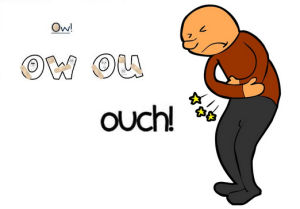I am a firm believer that there has been a paradigm shift regarding the study abroad programs at American universities. I am a caller at Lion Line which is the calling center for Penn State where students, like myself, reach out to alumni and try to get them to give back to the university. Whenever I call people that graduated as early as the 1970’s and ask them whether or not they studied abroad, a lot of them say “no.” For me, that is surprising because I feel like a lot of students now-a-days go out of their way to travel overseas for school at some point during their undergrad education. Personally, I would like to go to Italy during my junior year. However, the alumni that I call that graduated in the 1970’s or earlier often say that studying abroad wasn’t as big of a deal, or as common as it is for students now. In fact, according to the Institute of International Education, “overseas studies by U.S. students is up 8.5% and has increased four-fold over the past 20 years.” Statistics like these, and comments from alumni have forced me to speculate what the benefits are for studying abroad. Does it make us smarter? I did some research, and decided to share my finding with all of you. So, let’s find out!
My null hypothesis: Studying abroad does not make you smarter
My alternative hypothesis: Studying abroad does make you smarter
According to the GLOSSARI project where 20,000 students from the University of Georgia were tracked for ten years, “those who participated in study abroad programs performed better in school after returning to their American universities.” During this project researchers compared the grade point averages of the study abroad students before they went overseas and their grade point averages once they returned. In addition, researchers compared the graduation rate of study abroad students to those who stay at their university for all four years. In the end, the students who studied abroad increased from a 3.24 GPA to a 3.30 GPA. Not to mention that 49.6 percent of the students that studied abroad, graduated in four years while 42.1% of the students in the control group that remained at their universities graduated in four years.
Moreover, William Maddux conducted a study called “Expanding Opportunities by Opening Your Mind.” which consisted of tracking students over a “highly international ten-month master of business administration program.” Maddox even kept in mind and controlled personality and demographic variables. However, in the end, he came to the conclusion that people who have experience with different cultures are more open minded and innovative.
Clearly, the GLOSSARI project and Maddox’s study have produced results that are consistent with my alternative hypothesis. As a result, I am able to reject my null hypothesis. However, while the findings are consistent with my alternative hypothesis, I cannot full accept it, especially because these experiments were not double-blind, they were observational. Observational experiments do not rule out chance and confounding variables. Due to that fact, students knew that their studies were being tracked while they were studying abroad which could have motivated them to work harder in their studies to help prove the hypothesis. Another confounding variable could be the types of classes the participants took at their American universities versus the classes they took while they were overseas. It is a possibility that students engaged in easier classes, thus elevating their GPA while they were studying abroad. Last, but not least, the GLOSSARI project and Maddox’s study are only two experiments. There is a lot more research that can go into this topic to see whether or not study abroad programs affect the intelligence of students. When these experiments occur, researchers should be sure to control important personality and demographic differences like Maddox did. However, they should also keep in mind what classes the students are taking, and what kind of country they are traveling too. For instance, a students who goes to Spain would have to learn a different language opposed to a student who travels to the United Kingdom where the inhabitants speak English.
Hope you found this interesting! Never Stop Exploring! 🙂
Websites Used:
http://www.theatlantic.com/health/archive/2011/03/does-studying-abroad-make-you-smarter-turns-out-it-might/73217/
http://bcastudyabroad.org/blog/2015/02/does-studying-abroad-make-you-smarter/
http://www.ibercampus.eu/does-studying-abroad-makes-you-smarter-1762.htm
http://www.studyoverseas.com/includes/tmp/browser/images/static_europe.jpg
http://www.iie.org/who-we-Are/News-and-Events/Press-Center/Press-Releases/2009/2009-11-16-Americans-Study-Abroad-Increasing























